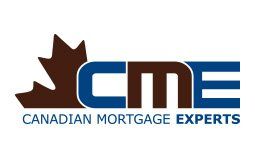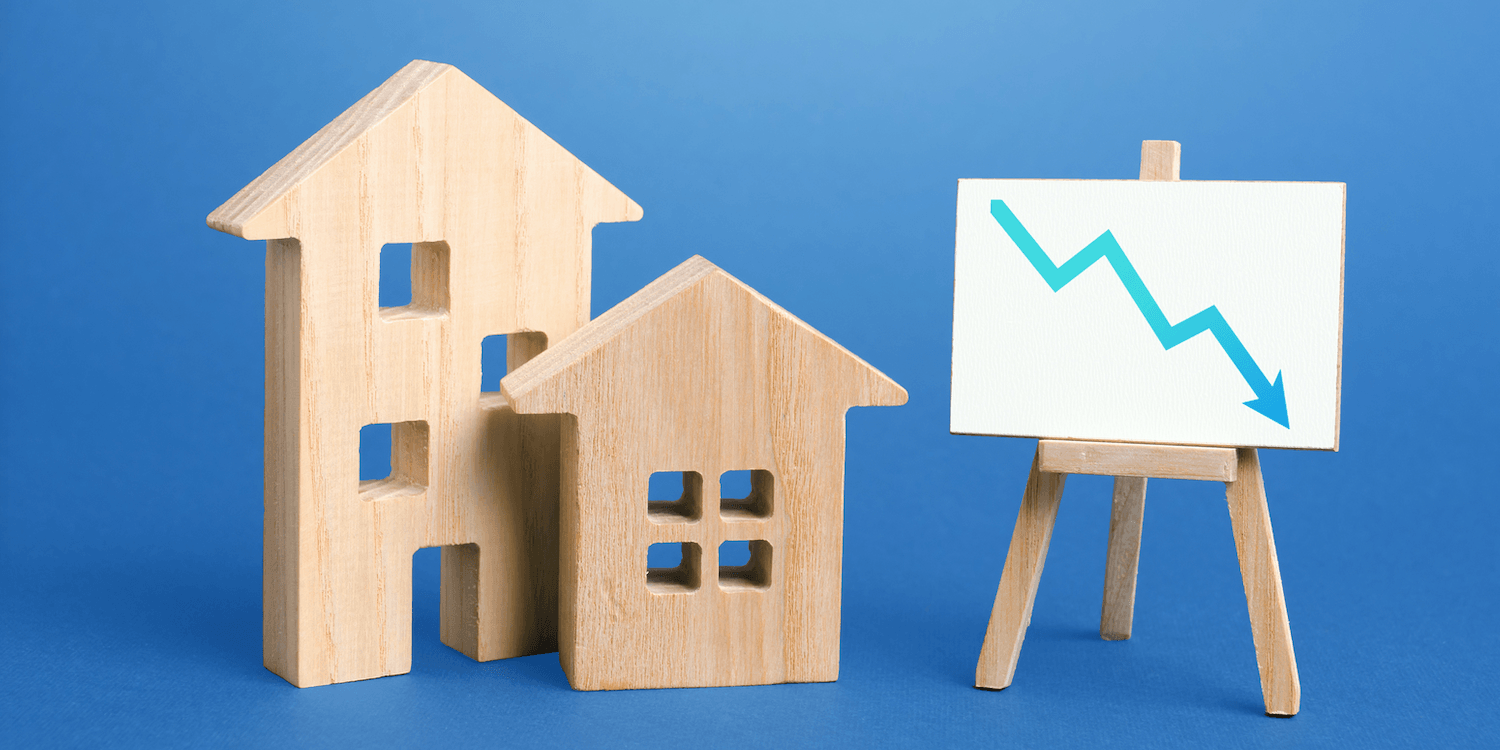CMHC Makes It Harder To Qualify For An Insured Mortgage
DLC Canadian Mortgage Experts • June 5, 2020
CMHC Tightens Housing Credit Availability Just When the Economy Needs All The Help It Can Get
Once again, the Canadian Mortgage and Housing Corporation (CMHC) is tightening the criteria to get a mortgage with less than a 20% downpayment. Any potential homebuyer with less than a 20% downpayment must purchase default insurance on their loan and have a minimum downpayment of 5%. CMHC is a federal Crown Corporation that provides such default insurance. Its mandate is to help Canadians access affordable housing options
. Providing mortgage insurance to homebuyers is one of its main activities. Mortgage default insurance
protects lenders in the event a borrower ever stopped making payments and defaulted on their mortgage
loan--a very infrequent occurrence in Canada.
There are private providers of default insurance as well--Genworth Financial Canada and Canada Guaranty. CMHC is the only insurer of mortgages for multi-unit residential properties, including large rental buildings, student housing and nursing and retirement homes. It is the largest provider of mortgage default insurance by far and is also the primary insurer for housing in small and rural communities.
Investment properties are not eligible for mortgage insurance. Because of this, the buyer needs at least a 20% downpayment to buy an investment property. Homes costing more than $1 million, as well, are not eligible for mortgage insurance. Typically the lender chooses the mortgage insurer.
Why Is CMHC Tightening Qualifications?
The economics team at CMHC has predicted that owing to the pandemic lockdown, home prices will likely fall by 9% to 18% over the next 12 months. They also believe that it will take at least two years for prices to return to pre-pandemic levels. The CMHC forecast for the economy is more pessimistic than many other forecasts, particularly that of the Bank of Canada, which asserted yesterday that the outlook for the economy was better than their April forecast suggested. Moreover, CMHC acknowledges the high degree of uncertainty associated with any forecast at this time. The Crown Corporation highlights the post-shutdown job losses, business closures and the drop in immigration that adversely affect Canadian housing.
They also have emphasized the 15% of existing mortgages that are now in deferral and believe there is a risk that 20% of all mortgages could be in arrears when deferrals end. Their stated justification for tightening qualification requirements is "to protect future home buyers and reduce risk."
What Are These Changes In Underwriting Policies
Effective July 1, the following changes will apply for new applications for homeowner transactional and portfolio mortgage insurance:
There are private providers of default insurance as well--Genworth Financial Canada and Canada Guaranty. CMHC is the only insurer of mortgages for multi-unit residential properties, including large rental buildings, student housing and nursing and retirement homes. It is the largest provider of mortgage default insurance by far and is also the primary insurer for housing in small and rural communities.
Investment properties are not eligible for mortgage insurance. Because of this, the buyer needs at least a 20% downpayment to buy an investment property. Homes costing more than $1 million, as well, are not eligible for mortgage insurance. Typically the lender chooses the mortgage insurer.
Why Is CMHC Tightening Qualifications?
The economics team at CMHC has predicted that owing to the pandemic lockdown, home prices will likely fall by 9% to 18% over the next 12 months. They also believe that it will take at least two years for prices to return to pre-pandemic levels. The CMHC forecast for the economy is more pessimistic than many other forecasts, particularly that of the Bank of Canada, which asserted yesterday that the outlook for the economy was better than their April forecast suggested. Moreover, CMHC acknowledges the high degree of uncertainty associated with any forecast at this time. The Crown Corporation highlights the post-shutdown job losses, business closures and the drop in immigration that adversely affect Canadian housing.
They also have emphasized the 15% of existing mortgages that are now in deferral and believe there is a risk that 20% of all mortgages could be in arrears when deferrals end. Their stated justification for tightening qualification requirements is "to protect future home buyers and reduce risk."
What Are These Changes In Underwriting Policies
Effective July 1, the following changes will apply for new applications for homeowner transactional and portfolio mortgage insurance:
- The maximum gross debt service (GDS) ratio drops from 39 to 35
- The maximum total debt service (TDS) ratio drops from 44 to 42
- The minimum credit score rises from 600 to 680 for at least one borrower
- Non-traditional sources of downpayment that increase indebtedness will no longer be treated as equity for insurance purposes
CMHC goes on to say that "To further manage the risk to our insurance business, and ultimately taxpayers, during this uncertain time, we have also suspended refinancing for multi-unit mortgage insurance except when the funds are used for repairs or reinvestment in housing. Consultations have begun on the repositioning of our multi-unit mortgage insurance products."
Here's What We Know So Far
Anecdotal reports suggest that it is likely that private default insurers will not match CMHC's lower debt ratios. They might, however, be more selective in their approval processes.
Canadian fiscal and monetary authorities are expending huge sums to keep the economy afloat, cushion the blow of the shutdown, and to make sure ample credit is available. These actions are intended to minimize unnecessary insolvencies. It is, therefore, surprising that a federal Crown Corporation would take these procyclical actions now.
The exact impact of these changes will not be known until more details are available: How the Big Banks will respond with their own prime mortgage underwriting rules; how these new rules will apply to the securitization market; and how far the private default insurers will go along with these new rules.
Suffice it to say that this batters buyer and seller confidence and, all other things equal, has a net negative impact on the near-term housing outlook. Most importantly, in my view, these changes are unnecessary to protect the prudence of Canada's home lending practices. Mortgage delinquency rates are meagre, and even the Bank of Canada's forecast is for delinquencies to remain less than 1% of all outstanding mortgages. Moreover, homebuyers with jobs who meet former qualifications would undoubtedly have a longer than two-year time horizon when buying their first homes. They were already qualifying at the posted rate that is more than 250 basis points above the contract rate. If anything, the pandemic recession assures that interest rates will remain very low over the next two years.
Here's What We Know So Far
Anecdotal reports suggest that it is likely that private default insurers will not match CMHC's lower debt ratios. They might, however, be more selective in their approval processes.
Canadian fiscal and monetary authorities are expending huge sums to keep the economy afloat, cushion the blow of the shutdown, and to make sure ample credit is available. These actions are intended to minimize unnecessary insolvencies. It is, therefore, surprising that a federal Crown Corporation would take these procyclical actions now.
The exact impact of these changes will not be known until more details are available: How the Big Banks will respond with their own prime mortgage underwriting rules; how these new rules will apply to the securitization market; and how far the private default insurers will go along with these new rules.
Suffice it to say that this batters buyer and seller confidence and, all other things equal, has a net negative impact on the near-term housing outlook. Most importantly, in my view, these changes are unnecessary to protect the prudence of Canada's home lending practices. Mortgage delinquency rates are meagre, and even the Bank of Canada's forecast is for delinquencies to remain less than 1% of all outstanding mortgages. Moreover, homebuyers with jobs who meet former qualifications would undoubtedly have a longer than two-year time horizon when buying their first homes. They were already qualifying at the posted rate that is more than 250 basis points above the contract rate. If anything, the pandemic recession assures that interest rates will remain very low over the next two years.
This article was written by Dr. Sherry Cooper, DLC's Chief Economist.
RECENT POSTS

Did you know there’s a program that allows you to use your RRSP to help come up with your downpayment to buy a home? It’s called the Home Buyer’s Plan (or HBP for short), and it’s made possible by the government of Canada. While the program is pretty straightforward, there are a few things you need to know. Your first home (with some exceptions) To qualify, you need to be buying your first home. However, when you look into the fine print, you find that technically, you must not have owned a home in the last four years or have lived in a house that your spouse owned in the previous four years. Another exception is for those with a disability or those helping someone with a disability. In this case, you can withdraw from an RRSP for a home purchase at any time. You have to pay back the RRSP You have 15 years to pay back the RRSP, and you start the second year after the withdrawal. While you won’t pay any tax on this particular withdrawal, it does come with some conditions. You’ll have to pay back the total amount you withdrew over 15 years. The CRA will send you an HBP Statement of Account every year to advise how much you owe the RRSP that year. Your repayments will not count as contributions as you’ve already received the tax break from those funds. Access to funds The funds you withdraw from the RRSP must have been there for at least 90 days. You can still technically withdraw the money from your RRSP and use it for your down-payment, but it won’t be tax-deductible and won’t be part of the HBP. You can access up to $35,000 individually or $70,00 per couple through the HBP. Please connect anytime if you’d like to know more about the HBP and how it could work for you as you plan your downpayment. It would be a pleasure to work with you.

If you’re new to the home buying process, it’s easy to get confused by some of the terms used. The purpose of this article is to clear up any confusion between the deposit and downpayment. What is a deposit? The deposit is the money included with a purchase contract as a sign of good faith when you offer to purchase a property. It’s the “consideration” that helps make up the contract and binds you to the agreement. Typically, you include a certified cheque or a bank draft that your real estate brokerage holds while negotiations are finalized when you offer to purchase a property. If your offer is accepted, your deposit is held in your Realtor’s trust account. If your offer is accepted and you commit to buying the property, your deposit is transferred to the lawyer’s trust account and included in your downpayment. If you aren’t able to reach an agreement, the deposit is refunded to you. However, if you commit to buying the property and don’t complete the transaction, your deposit could be forfeit to the seller. Your deposit goes ahead of the downpayment but makes up part of the downpayment. The amount you put forward as a deposit when negotiating the terms of a purchase contract is arbitrary, meaning there is no predefined or standard amount. Instead, it’s best to discuss this with your real estate professional as your deposit can be a negotiating factor in and of itself. A larger deposit may give you a better chance of having your offer accepted in a competitive situation. It also puts you on the hook for more if something changes down the line and you cannot complete the purchase. What is a downpayment? Your downpayment refers to the initial payment you make when buying a property through mortgage financing. In Canada, the minimum downpayment amount is 5%, as lenders can only lend up to 95% of the property’s value. Securing mortgage financing with anything less than 20% down is only made possible through mortgage default insurance. You can source your downpayment from your resources, the sale of a property, an RRSP, a gift from a family member, or borrowed funds. Example scenario Let’s say that you are looking to purchase a property worth $400k. You’re planning on making a downpayment of 10% or $40k. When you make the initial offer to buy the property, you put forward $10k as a deposit your real estate brokerage holds in their trust account. If everything checks out with the home inspection and you’re satisfied with financing, you can remove all conditions. Your $10k deposit is transferred to the lawyer’s trust account, where will add the remaining $30k for the downpayment. With your $40k downpayment made, once you sign the mortgage documents and cover the legal and closing costs, the lender will forward the remaining 90% in the form of a mortgage registered to your title, and you have officially purchased the property! If you have any questions about the difference between the deposit and the downpayment or any other mortgage terms, please connect anytime. It would be a pleasure to work with you.


